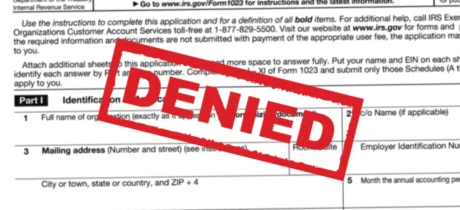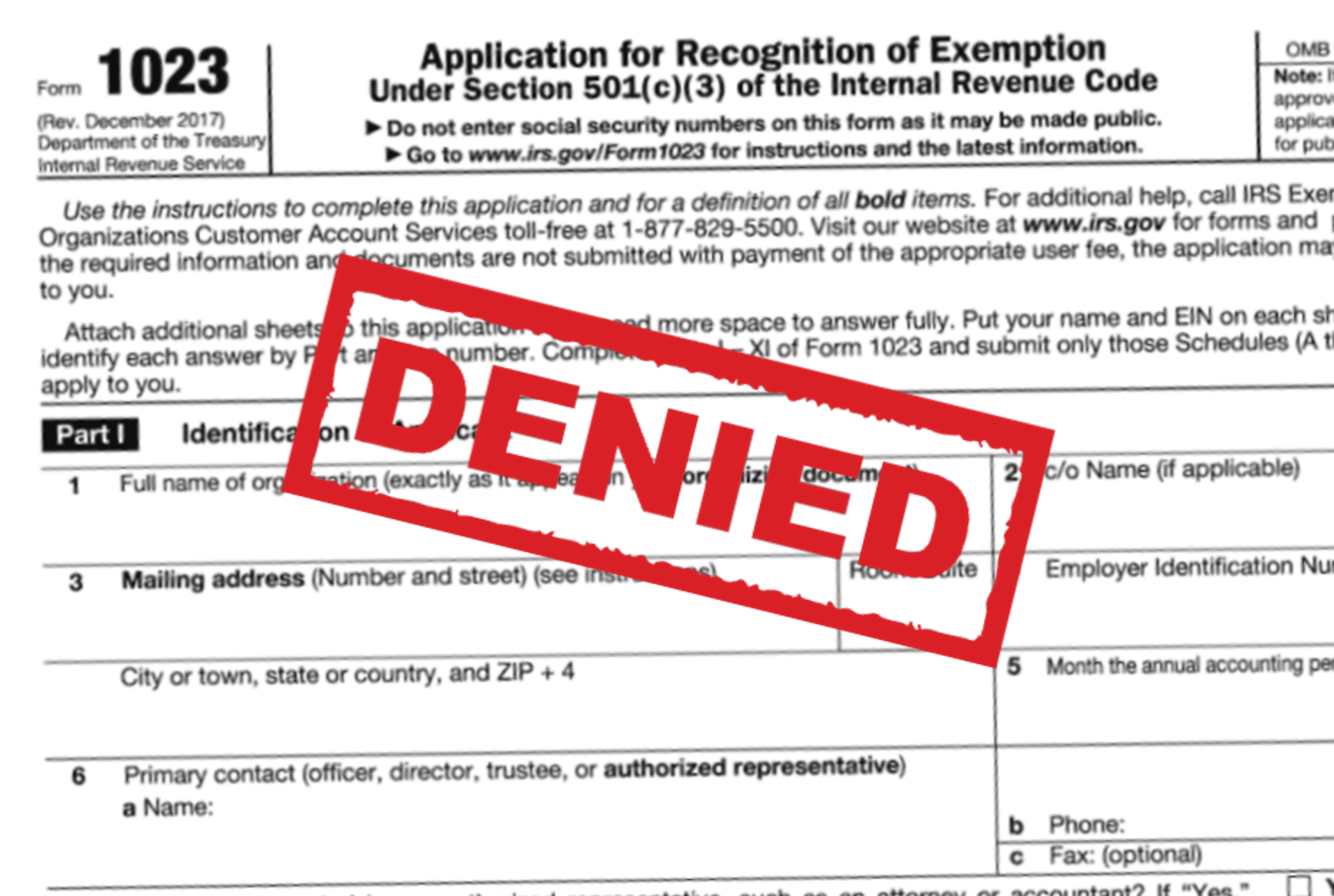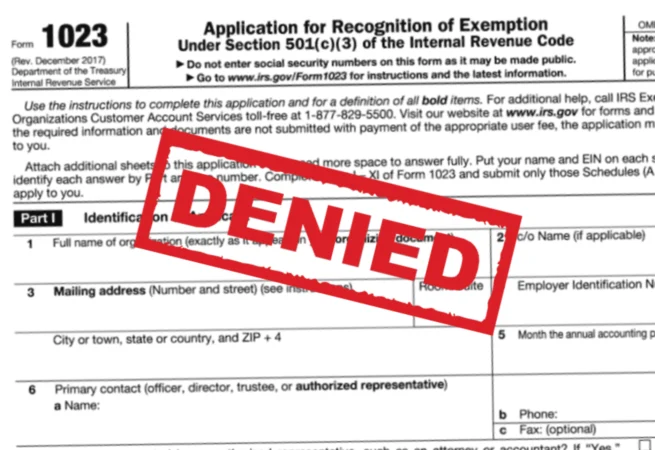

The Vital Importance of Registering Your Youth Sports League as a 501(c)(3)
Running a youth sports league is a rewarding yet demanding endeavor, and one essential step that is often overlooked is ensuring your league is properly registered as a 501(c)(3) nonprofit organization. This oversight can have serious repercussions, but the benefits of being officially recognized are invaluable. I experienced this firsthand when I joined my local league’s board and discovered that, shockingly, we hadn’t been a registered 501(c)(3) for over a decade. Here’s why this matters and how you can make sure your league is compliant.
What Is a 501(c)(3) and Why It Matters?
Definition of 501(c)(3) Status
A 501(c)(3) is a designation by the Internal Revenue Service (IRS) that grants an organization tax-exempt status as a nonprofit entity. Specifically, organizations with this status are recognized as charitable entities, meaning they operate for purposes such as education, sports, or community welfare. Youth sports leagues can benefit significantly from this designation, as it not only provides financial relief but also opens doors to greater opportunities.
Key Advantages for Your League
- Tax Exemptions: 501(c)(3) organizations are exempt from paying federal income taxes. This allows your league to allocate more funds to important initiatives like new equipment, field rentals, and scholarships for kids in need.
- Fundraising and Grant Eligibility: Being a registered nonprofit means your league can apply for grants and offer tax-deductible receipts to donors, encouraging more community support and sponsorships.
- Credibility and Transparency: Sponsors and community members are more likely to support a league that demonstrates fiscal responsibility and transparency. 501(c)(3) status boosts your reputation and shows that your league operates in the public interest.
The Dangers of Not Being a 501(c)(3)
Potential Legal and Financial Consequences
If your youth sports league operates without official 501(c)(3) status, you may be opening the door to significant legal and financial trouble. For instance, your league could be held responsible for paying back taxes on donations received over the years, along with potential penalties and interest. This can be a crippling financial burden, especially for volunteer-driven organizations that often operate on tight budgets.
Missed Opportunities in Funding and Sponsorships
Without 501(c)(3) status, your league will find it challenging to secure substantial sponsorships or grants. Many corporations and grant-making organizations require proof of nonprofit status before committing funds. Additionally, individual donors may be less inclined to contribute if they can’t claim a tax deduction for their donation. Ultimately, your league will have fewer resources, impacting your ability to provide a quality experience for young athletes.
How to Check if Your League Is a Registered 501(c)(3)
Step-by-Step Guide for Verification
Checking if your youth sports league is a registered 501(c)(3) organization is easier than you might think. Here are the steps to follow:
- Use the IRS Tax Exempt Organization Search Tool: Head over to the IRS website and use their search tool to check if your league is listed as a tax-exempt organization. You’ll need to enter the league’s name or Employer Identification Number (EIN) if you have it.
- Review Past League Documentation: Dig into your league’s files and look for any documentation that confirms 501(c)(3) status. This could include a determination letter from the IRS or copies of past Form 990 filings.
- Check State-Level Nonprofit Registrations: Sometimes, your league may be registered at the state level but not recognized federally. Make sure to verify both to get a full picture of your league’s nonprofit status.
What to Do if You Can’t Find Proof of Status
If you can’t find any documentation confirming your league’s 501(c)(3) status, don’t panic. Here’s what to do:
- Check with Past Board Members: Reach out to any previous board members or volunteers who might have historical knowledge about the league’s nonprofit status.
- Contact the IRS Directly: If you’re still in doubt, you can call the IRS Exempt Organizations Division to get more information. Be prepared to provide as many details as possible about your league, such as its name, location, and EIN.
How I Discovered My League Wasn’t Registered (A Personal Anecdote)
The Shocking Discovery
When I first joined the board of my local youth sports league, I assumed that everything was in order, including our nonprofit status. But as I started diving into the league’s finances and paperwork, I quickly discovered that we hadn’t been a registered 501(c)(3) for over 10 years. This shocking realization came when I couldn’t find any IRS documentation or previous Form 990 filings.
The Immediate Impact and Our Action Plan
This discovery was a wake-up call. Our league was at risk of facing financial and legal consequences, not to mention the lost opportunities for sponsorships and grants. I immediately gathered the board members and explained the situation. Together, we crafted an action plan to rectify the issue. We collected the necessary documents and submitted the required forms to the IRS. The process wasn’t easy, but it was essential for the long-term sustainability of our league.
Steps to Register Your League as a 501(c)(3)
Initial Steps Before Applying
Before diving into the registration process, it’s crucial to have all your documents in order. Here’s what you’ll need:
- Mission Statement: Clearly define the purpose of your league and how it benefits the community. This statement should emphasize the charitable and educational aspects of your program.
- Bylaws: Create a set of bylaws that outline how your league will operate. This document should include details about board member responsibilities, meeting schedules, and voting procedures.
- Financial Records: Gather past and current financial statements. These should provide a snapshot of your league’s income, expenses, and assets.
Once these documents are prepared, you can begin the formal application process.
Filing IRS Form 1023 or Form 1023-EZ
Depending on the size and complexity of your league, you’ll need to choose between two forms: Form 1023 or Form 1023-EZ.
- Form 1023: This is the long-form application for tax-exempt status and is generally required for larger organizations or those with more complex structures. It’s a detailed application that will ask for in-depth information about your league’s operations and finances.
- Form 1023-EZ: This simplified version is suitable for smaller organizations with less than $50,000 in annual revenue. It’s easier to fill out and faster to process, but make sure your league meets the eligibility criteria for this form.
Filing Tips:
- Double-check all the information on the form to avoid delays in processing.
- Include any required supplemental documents, such as your mission statement and financial projections.
State-Level Registration Requirements
In addition to registering with the IRS, your league may also need to file paperwork with your state government. These requirements vary by state, but common steps include:
- Filing Articles of Incorporation: You may need to submit these documents to your state’s business registration office. This often involves paying a small fee and listing your board members.
- Registering for State Tax Exemptions: Some states offer additional tax benefits to registered nonprofits. Check with your state’s revenue department to see what’s available.
Understanding the Ongoing Requirements for 501(c)(3) Organizations
Annual Filings with the IRS
Once your league is officially recognized as a 501(c)(3), the work doesn’t stop there. You must file annual reports to maintain your status.
- Form 990, 990-EZ, or 990-N: The type of form you file depends on your league’s annual revenue.
- Form 990-N (e-Postcard): For leagues with annual revenue of $50,000 or less.
- Form 990-EZ: For leagues with revenue between $50,000 and $200,000.
- Form 990: For larger organizations with revenue over $200,000.
Missing even one year of filings can result in automatic revocation of your 501(c)(3) status, which can be difficult and costly to reinstate.
Maintaining Compliance
Compliance is about more than just annual filings. To ensure your league remains in good standing, you should:
- Keep Accurate Financial Records: Track all donations, sponsorships, and expenses. This will help simplify the filing process and provide transparency.
- Board Governance: Make sure your board meets regularly and follows proper procedures. Document meeting minutes and major decisions to show that your league is being run responsibly.
Tips for Smooth 501(c)(3) Maintenance
Creating a Calendar for Annual Filings
Staying compliant with 501(c)(3) regulations requires consistent attention. One of the best ways to ensure you never miss an important deadline is by creating a compliance calendar. Here are some tips:
- Use Digital Tools and Reminders: Utilize digital calendars such as Google Calendar to schedule reminders for filing Form 990, updating board meeting records, and submitting state-specific paperwork.
- Set Reminders Well in Advance: Don’t wait until the last minute. Set alerts at least a month before each deadline to give your team enough time to gather the necessary information.
- Include Key Dates for State Requirements: Remember that state-level compliance might have different deadlines than federal filings. Ensure your calendar reflects these variations.
Engaging Board Members in Compliance
Compliance isn’t a one-person job. Involve your entire board to spread out responsibilities and ensure everyone understands the importance of staying compliant.
- Assign Roles and Responsibilities: For instance, designate one board member to oversee financial records (Treasurer) and another to handle meeting minutes (Secretary). This division of labor keeps your league organized and efficient.
- Educate Your Board Members: New board members may not be familiar with nonprofit regulations, so hold annual training sessions to explain the basics of 501(c)(3) compliance. This ensures everyone is on the same page and prepared to act in the best interest of the league.
FAQs about 501(c)(3) Status for Youth Leagues
What Does It Cost to Apply for 501(c)(3) Status?
The cost of applying depends on the form you choose:
- Form 1023-EZ: As of 2024, the filing fee for Form 1023-EZ is $275. This is typically used by smaller leagues with annual gross receipts of $50,000 or less.
- Form 1023: The filing fee for the long-form application is $600. This form is more comprehensive and may require additional resources or professional assistance.
How Long Does It Take to Get Approved?
The approval process can vary:
- Form 1023-EZ: Approval usually takes between 2 to 6 months, depending on the volume of applications the IRS is processing.
- Form 1023: The full application can take anywhere from 6 to 12 months, especially if the IRS requests additional information. To speed up the process, ensure your application is accurate and complete.
Can We Fundraise While Our Application Is Pending?
Yes, but with limitations. Your league can still hold fundraisers while the 501(c)(3) application is pending, but donors won’t be able to claim a tax deduction unless your status is approved. It’s crucial to inform potential donors about this situation to maintain transparency and trust.
Conclusion
Registering your youth sports league as a 501(c)(3) organization is not just a bureaucratic formality—it’s a critical step that can profoundly impact your league’s ability to grow, raise funds, and maintain trust within your community. As we’ve discussed, the benefits of being a registered nonprofit include tax exemptions, eligibility for grants and sponsorships, and enhanced credibility. Conversely, the risks of operating without this status can be severe, from financial penalties to missed opportunities for fundraising.
If your league isn’t already registered, take action today. Use the tools and tips provided to ensure your organization is compliant and well-positioned for long-term success. Remember, the well-being of your league and its young athletes depends on your proactive efforts.
Call to Action
Ready to get started? Double-check your league’s 501(c)(3) status today using the IRS Tax Exempt Organization Search Tool. If you discover that your league isn’t registered, don’t wait—begin gathering your documents and start the application process. Your community of young athletes is counting on your leadership and diligence to keep the league thriving and compliant.
FAQs About 501(c)(3) Status for Youth Leagues
- What Does It Cost to Apply for 501(c)(3) Status?
- The application fee varies based on the form you choose: $275 for Form 1023-EZ and $600 for the full Form 1023. Keep in mind, hiring a professional for assistance may incur additional costs.
- How Long Does It Take to Get Approved?
- Form 1023-EZ can take 2 to 6 months for approval, while Form 1023 may take up to a year. Be sure to complete your forms accurately to avoid delays.
- Can We Fundraise While Our Application Is Pending?
- Yes, your league can still fundraise, but inform donors that their contributions will only be tax-deductible if your application is approved.
- What Happens If We Miss an Annual Filing with the IRS?
- Missing a filing can lead to automatic revocation of your 501(c)(3) status. If this happens, your league may face financial penalties and will need to reapply for tax-exempt status.
- Do We Need a Lawyer to Apply for 501(c)(3) Status?
- While not mandatory, consulting a nonprofit attorney or an experienced accountant can help streamline the process, especially if your league’s financial structure is complex.
